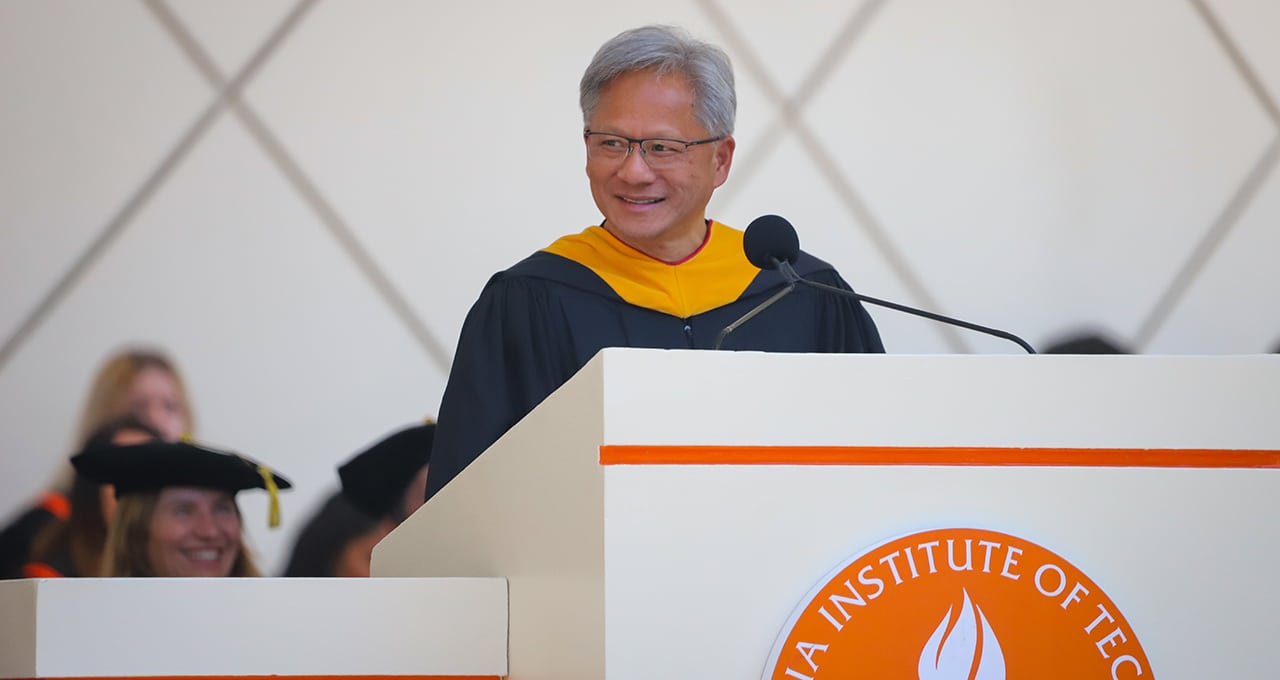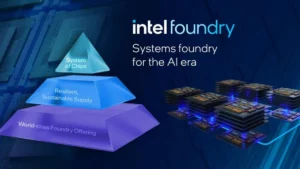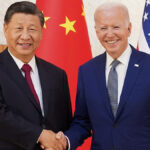Introduction
In a world where established giants dominate the tech landscape, venturing into the unknown can feel like a risky proposition. But Jensen Huang, CEO of graphics processing unit (GPU) powerhouse Nvidia, believes the greatest opportunities lie in uncharted territories. During his keynote address at the Caltech Class of 2024 Commencement Ceremony, Huang challenged graduates to set their sights on “zero-billion-dollar markets” – untapped sectors brimming with potential for groundbreaking innovation.
His message emphasized:
- Identifying opportunities: Look for areas that aren’t crowded by established companies.
- Embracing challenges: View setbacks as stepping stones to innovation.
- Building the future: Don’t be afraid to develop entirely new technologies that may not have a clear customer base yet.
Huang cited Nvidia’s own experience entering the accelerated computing market, which was initially overlooked by bigger players, as an example of this successful strategy.
Let’s explore Huang’s unconventional advice and the inspiration he shared with the future generation of tech leaders
Nvidia CEO Jensen Huang recently addressed the Caltech Class of 2024 as the keynote speaker at their commencement ceremony. Known for his influential role in the tech industry, Huang shared insights from his journey, emphasizing the importance of pursuing markets that currently seem insignificant but have the potential to grow exponentially. His message resonated deeply with graduates poised to enter a rapidly evolving technological landscape.
Jowi Morales
Follow us on Linkedin for everything around Semiconductors & AI
What is Zero billion dollar market?
A “zero-billion-dollar market” refers to a market segment that currently doesn’t exist or has very little economic value. There might not be a clear customer base or established need for the product or service yet.
Here’s why pursuing these markets can be unorthodox advice:
- High Risk: These markets are unproven, so there’s a chance your product or service flops. It takes significant investment and time to develop something entirely new with no guarantee of success.
- Uncertainty: You’ll need to convince potential customers of the value your product or service brings, which can be challenging when they’re not even aware they need it.
- Competition might be low, but so is demand: There might not be established competitors, but there might also not be a large enough pool of interested buyers.
Despite the risks, there are also potential rewards:
- First-mover advantage: By creating the market, you become the leader and can potentially reap significant profits.
- High growth potential: If your product or service takes off, the market size can explode, leading to immense success.
- Innovation: Focusing on these markets can lead to groundbreaking advancements that change the world.
So, while unorthodox, pursuing “zero-billion-dollar markets” can be a gamble with potentially massive payoffs for those willing to take the risk and be at the forefront of innovation.
Background: Nvidia’s Rocky Start
Huang began by recounting Nvidia’s early days, marked by frequent setbacks. Despite launching products that generated excitement and success, Nvidia often found itself pushed out of established markets within a year. This tumultuous period led to the company’s unofficial motto: “Our company is thirty days from going out of business.”
These setbacks forced Nvidia to innovate and seek opportunities in uncharted territories. Huang explained, “Where there are no customers, there are also no competitors.”
This approach led Nvidia to pioneer what he calls “zero-billion-dollar markets”—markets that are not yet valuable but have the potential to become billion-dollar industries.
A prime example is GPU-accelerated computing, which was in its infancy when Nvidia entered the scene.
Read More:$32 Billion Fab to Produce 2nm Chips with Built-In Packaging: Rapidus Makes a Power Play
The Birth of GPU-Accelerated Computing
Unlike general computing chips from Intel and AMD, which are designed for broad applications, Nvidia focused on accelerated computing processors tailored for specific purposes.
This strategy steered the company towards developing GPUs, which, due to their computational power, found applications in various industries beyond gaming.
Nvidia’s investment in GPU technology paid off with the launch of the RIVA 128 GPU in 1997, selling a million units in just four months.
This success allowed Nvidia to reinvest profits into further research and development, setting the stage for future breakthroughs.
Read More: 5 Most Exciting Startups Building AI Hardware – techovedas
Vision for Artificial Intelligence
At the time of Nvidia’s founding, artificial intelligence was not a primary focus. However, Huang recognized the potential of deep learning and AI as the company’s growth drivers. He emphasized the importance of innovation and taking risks, quoting, “If we don’t build it, they can’t come,” a nod to the famous line from Kevin Costner’s “Field of Dreams.”
Read More:Stellantis-Leapmotor Announces Global Expansion, Set to Enter India by Q4 2024 – techovedas
Advice to Graduates
Addressing the graduates, Huang urged them to prioritize their lives to find time for important endeavors. He encouraged them to pursue their passions with excellence, grit, and dedication. Setbacks, he noted, should be seen as opportunities to explore new directions rather than as failures.
“I hope you believe in something. Something unconventional, something unexplored. But let it be informed, and let it be reasoned, and dedicate yourself to making that happen,”
Jensen Huang, CEO, Nvidia
He also highlighted the importance of resilience, stating, “The world can be unfair and deal you tough cards. Swiftly shake it off. There’s another opportunity out there—or create one.”
Why It Matters
Huang’s speech holds significant relevance in today’s tech landscape for several reasons.
The emphasis on transparency and innovation is crucial as companies navigate these challenges.
Nvidia’s success story demonstrates the power of foresight and willingness to take risks. By pioneering markets that initially appeared insignificant, Nvidia positioned itself as a leader in GPU-accelerated computing and AI. This approach is a valuable lesson for new graduates entering a competitive job market.
The speech underscores the importance of resilience and adaptability. As technology evolves at an unprecedented pace, the ability to pivot and embrace new opportunities will be vital for the next generation of tech leaders.
The Persona Behind the Leader
Huang’s speech was peppered with pop culture references, reflecting his approachable personality. Known for his signature leather jacket, he has cultivated a reputation as a leader who connects with people both inside and outside the company.
He is approachable demeanor has earned him the moniker ‘Jensanity’ among the press and fans, particularly in Taiwan during Computex 2024.
Despite his high standards and the stress some employees feel during meetings, Huang’s leadership is characterized by a commitment to excellence and personal accountability.
A staff member once noted, “If you haven’t been yelled at by him, it means he doesn’t care about you.”
Staying Humble
Despite his meteoric rise and Nvidia’s leadership in AI, Huang remains humble. After an enthusiastic introduction by Caltech’s Chair of the Board of Trustees David Thompson, Huang began his speech modestly, saying, “It really makes me cringe listening to all that… I hate hearing about myself.”
Read More:5 Major AI Announcements from Apple’s WWDC 2024 – techovedas
Conclusion
Jensen Huang’s commencement speech at Caltech was a call to action for the next generation of tech leaders +set their sights on “zero-billion-dollar markets”
His journey from Nvidia’s precarious beginnings to its current status as a tech giant serves as a testament to the power of innovation, perseverance, and the pursuit of unconventional opportunities.
For the Class of 2024, his words were not just inspirational but a blueprint for future success in an ever-evolving industry.








